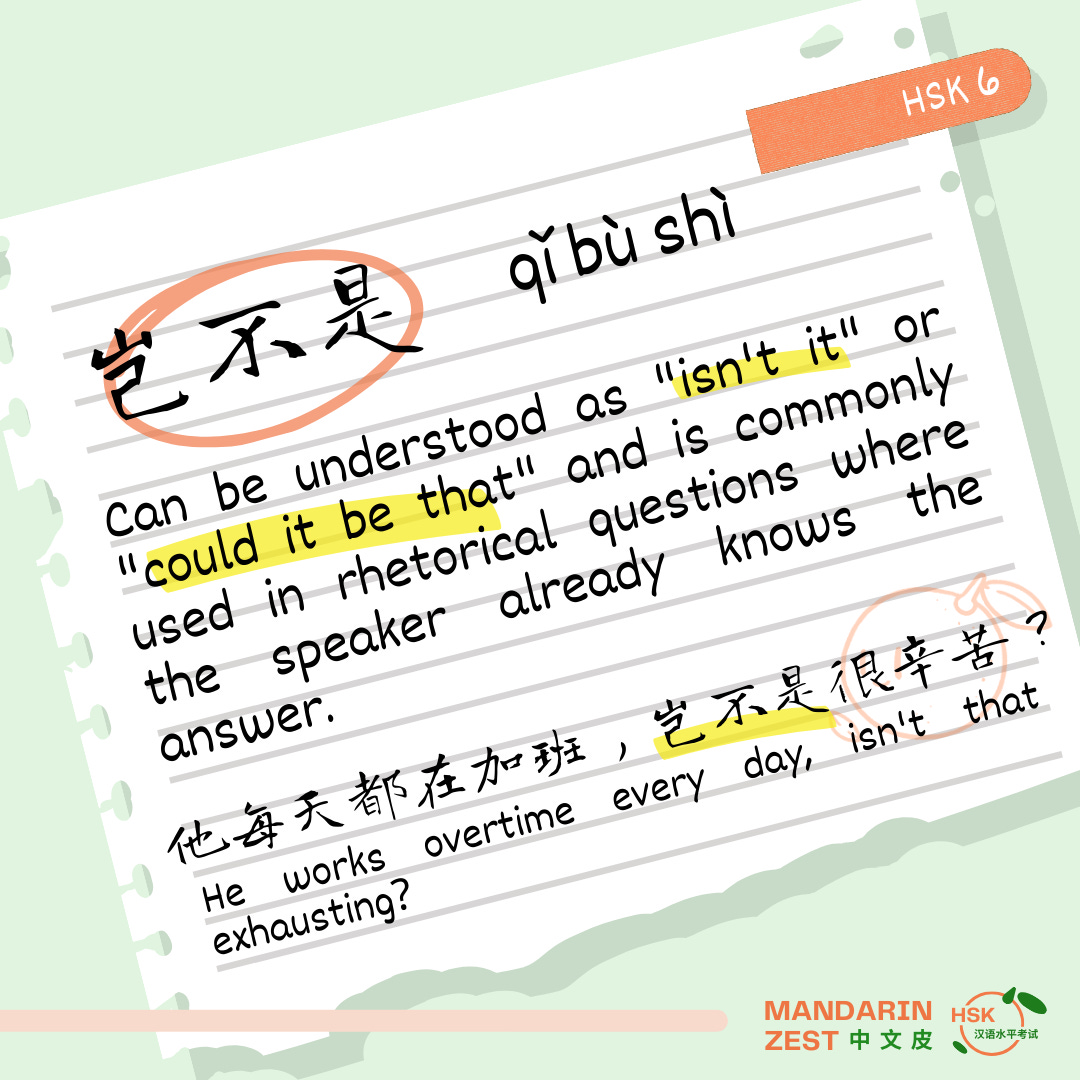The phrase 岂不是 (qǐ bù shì) can be understood as "isn't it" or "could it be that" and is commonly used in rhetorical questions where the speaker already knows the answer. It adds an emphatic or rhetorical tone, often implying that something is obvious or inevitable.
岂不是 is usually placed at the beginning of a sentence or clause, followed by the statement being questioned rhetorically.
岂不是 + [statement]
Sample Sentences
如果明天下雨,岂不是我们的计划要取消了?If it rains tomorrow, doesn't that mean our plan will be canceled?
这个方法又快又简单,岂不是最好的选择?This method is fast and simple; isn't it the best choice?
你这么晚才出发,岂不是赶不上最后一班车?You're leaving so late; won't you miss the last bus?
In a Text
今天我朋友告诉我,他准备放弃这个项目了。我听了之后,觉得很奇怪,因为他已经为这个项目努力了半年多。
我问他:“你不是一直说这个项目对你很重要吗?现在突然放弃,岂不是浪费了你之前的所有努力?”
他说:“我也觉得可惜,但继续下去的话,可能只会浪费更多时间和资源。”
听了他的解释,我点了点头,但还是忍不住想,这样的决定岂不是有点太冲动了?
冲动 (chōng dòng): Impulsive; impulse
Today, my friend told me he was planning to give up on this project. I felt very puzzled because he had been working hard on it for over six months.
I asked him, "Haven't you always said this project was really important to you? If you suddenly give up now, isn't that a waste of all your previous efforts?"
He said, "I also think it's a pity, but if I keep going, it might just waste even more time and resources."
After hearing his explanation, I nodded, but I still couldn't help thinking, isn't such a decision a bit too impulsive?






